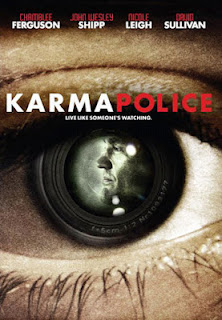THE IMMORTALITY OF CREATIVITY
NOVELIST: How tragic that man can never realize how beautiful
life is until he is face to face with death.
—Ikiru, 1952, Akira
Kurosawa.
THERE IS BUT ONE TRULY SERIOUS FEAR, and that is death.
The rest are just trivial
ramifications with which the game of life keeps us entertained. Until the
alarm goes off. ‘Too soon. Too soon,’ you cry. They have programmed it without
your consent. And ironically the alarm goes off to remind you
what life is. Just death can tell. It whispers, ‘It’s a gift.’ And that
dreadful shot to your soul happens to be an awakening experience; and perhaps
from then on, there will be no embrace of comfort.
Throughout history, many thinkers
and philosophers have reflected on the finiteness, the pool of emptiness in
which we will undoubtedly fall in. Humans try to anesthetize the anxiety of
death by having descendants. As French writer Françoise Sagan put it, ‘You wish to have a child at some point in
life; perhaps to die less when you die.’
Is creativity an immortal project, too?
Everybody can be creative to begin
with—Don’t let anyone fool you with the contrary—. Perhaps it’s just a matter
of dropping all what you have learned in order to create something new,
something that stems from your inner being. Then, the absorption, the
assimilation of life leaves imprints in a form of poetry, a
composition, a recipe, a way of thinking, etc.
But setting your name in lights on
billboards for prosperity, does it matter much? Does it alleviate us?
Every spring a flower blooms around
some bushes in a field where I go running. I don’t remember the flower’s name,
but I never forget its beauty, its fragance.
Namaste.
Copyright © 2012 by THE PYTHAGOREAN STORYTELLER. All
rights reserved.
 Silence reveals,
Silence reveals,

